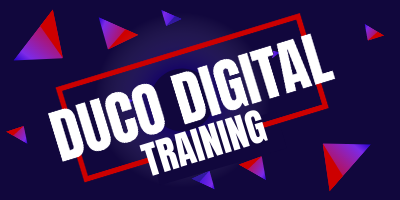By providing employees with opportunities to upgrade skills,
organisations can make workers feel valued and given a committed future in the
company.
Employees who are benefited from training and development opportunities are likely to feel fulfilled by their roles and positive about their future within your company. Many studies have shown that companies with dedicated training and development programs for employees see not only dramatic increases in profits, but a higher rate of retention among employees, vital to sustaining corporate growth.
While development programs are focused more on broader skills like leadership, communication, and decision-making, employee training, by contrast, has specific, measurable goals related to improving productivity and precision in the processes at hand. More concretely, training involves programs that allow employees to acquire specific skills or knowledge that will enhance their productivity.
Trainers may deliver upskilling training in classroom settings, which allows employees to learn new skills or enhance existing ones. By having unique upskilling training, you are communicating to candidates that this is something they can accomplish at your company.
One of the biggest reasons you should invest in an upskilling program is if you are looking to improve the performance of your workers, and subsequently, grow the success of your company further. Good upskilling programs are something that you can do to combat job-hopping and the loss of talent, and so, can even get a higher return on your time and money.
The best part is that, in addition to providing employees with sought-after skills, upskilling can also be a way of introducing new changes in the workplace and helping employees adapt quickly.
Companies invest in upskilling to enable employees to get more done in less time, come up with new solutions and ideas, or take on more complex tasks. Large companies such as Amazon and PWC already invest in upskilling programs for their employees.
With upskilling, companies save money by improving the skills of their existing employees, rather than spending time and budget to hire new workers.
Upskilling has an array of benefits, ranging from improving worker motivation to saving a company money.
Upskilling benefits:
Upskilling helps current employees learn new skills for their jobs, makes a company more attractive to job candidates, and enhances employee experiences. Because upskilling is focused on helping employees learn skills for the future, companies can fill open positions by building training opportunities, retaining their current workforce.
When it comes to filling open positions, training current employees on new skills and moving this person across roles or departments is a potential cost savings.
Many companies already have made it a practice to train current employees, helping them build skills that will fit with their changing work requirements. Because it’s usually easier and cheaper to close skills gaps within your business by training current employees rather than going out and hiring new ones.
Employees who are benefited from training and development opportunities are likely to feel fulfilled by their roles and positive about their future within your company. Many studies have shown that companies with dedicated training and development programs for employees see not only dramatic increases in profits, but a higher rate of retention among employees, vital to sustaining corporate growth.
While development programs are focused more on broader skills like leadership, communication, and decision-making, employee training, by contrast, has specific, measurable goals related to improving productivity and precision in the processes at hand. More concretely, training involves programs that allow employees to acquire specific skills or knowledge that will enhance their productivity.
Trainers may deliver upskilling training in classroom settings, which allows employees to learn new skills or enhance existing ones. By having unique upskilling training, you are communicating to candidates that this is something they can accomplish at your company.
One of the biggest reasons you should invest in an upskilling program is if you are looking to improve the performance of your workers, and subsequently, grow the success of your company further. Good upskilling programs are something that you can do to combat job-hopping and the loss of talent, and so, can even get a higher return on your time and money.
The best part is that, in addition to providing employees with sought-after skills, upskilling can also be a way of introducing new changes in the workplace and helping employees adapt quickly.
Companies invest in upskilling to enable employees to get more done in less time, come up with new solutions and ideas, or take on more complex tasks. Large companies such as Amazon and PWC already invest in upskilling programs for their employees.
With upskilling, companies save money by improving the skills of their existing employees, rather than spending time and budget to hire new workers.
Upskilling has an array of benefits, ranging from improving worker motivation to saving a company money.
Upskilling benefits:
Upskilling helps current employees learn new skills for their jobs, makes a company more attractive to job candidates, and enhances employee experiences. Because upskilling is focused on helping employees learn skills for the future, companies can fill open positions by building training opportunities, retaining their current workforce.
When it comes to filling open positions, training current employees on new skills and moving this person across roles or departments is a potential cost savings.
Many companies already have made it a practice to train current employees, helping them build skills that will fit with their changing work requirements. Because it’s usually easier and cheaper to close skills gaps within your business by training current employees rather than going out and hiring new ones.


